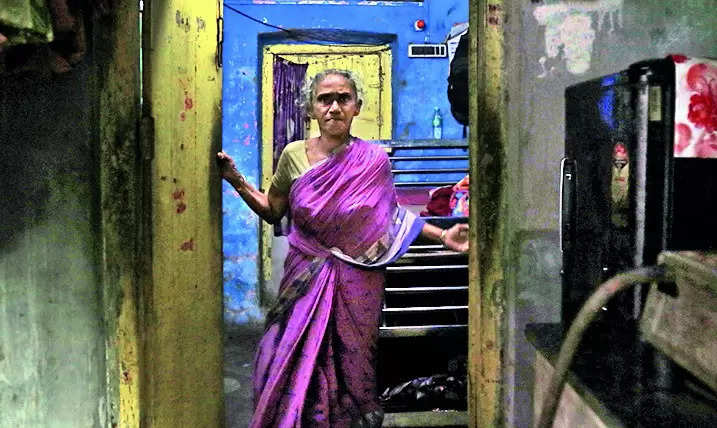RG Kar Medical College Rape and Murder: A Call for Accountability
The horrific rape and murder of a 31-year-old resident doctor at RG Kar Medical College and Hospital sent shockwaves through India. This wasn't just a tragedy; it was a devastating indictment of systemic failures within the hospital's administration. The subsequent court case, culminating in a life sentence for convict Sanjay Roy, unveiled a chilling cover-up attempt that exposed the negligence and apathy of those entrusted with protecting the hospital's staff. Let's delve into the shocking details and the urgent need for reform.
The Heartbreaking Case and the Subsequent Court Ruling
The details of the case are both horrific and infuriating. A young doctor, diligently performing her duties, was brutally attacked and murdered within the hospital's walls. This should have triggered immediate, thorough investigation and an unequivocal condemnation. However, what unfolded instead was a blatant attempt by the hospital administration to sweep the crime under the rug. The court's 172-page judgment meticulously outlines the administrative failures, highlighting how the hospital attempted to cover their tracks by classifying the death as a suicide, and failing to even immediately notify authorities. The life sentence handed to Roy serves as a conviction, but more significantly as a symbolic indictment of those in positions of power who failed to act.
The Systemic Failures at RG Kar Hospital
The judge's scathing remarks directed at the principal and medical superintendent reveal the depths of the systemic failings within the hospital. Their inaction speaks volumes—a clear disregard for the life and safety of a resident doctor, and more importantly the shocking disregard for upholding their duties. The hospital’s blatant attempt to misrepresent the events—pointing towards suicide instead of murder and rape—underscores the chilling priority given to self-preservation over accountability. The fact that the hospital failed to implement the basic security measure of properly addressing a stranger present within the hospital points toward overall inadequacy within the hospital’s security system.
Negligence, Cover-Up, and the Culture of Silence
The judgment's details point to more than simple negligence; it points to a potential organized cover-up, actively hindering any chances of proper investigation or finding justice for the victim. The attempt to portray the incident as a suicide wasn't accidental—it was a deliberate action to prevent the truth from coming out. This underscores a critical issue—the lack of transparency, accountability, and proper investigation methods when issues such as security lapses and criminal activities arise within hospitals. The testimony from a junior doctor highlights the lapse in security, leading to the presence of an unauthorized individual on the hospital premises. This is alarming and points toward a systemic security problem within the hospital, putting many other members of the medical staff at severe risk.
A Wake-Up Call for Healthcare Safety and Security
This tragedy serves as a devastating wake-up call for the healthcare system, not just in Kolkata, but throughout the country. The case is a stark reminder that we cannot afford to have hospitals operating with a culture of silence and indifference toward employee safety and security. We can’t merely depend on punishment of one criminal; rather, hospital staff need to be properly educated on ways to report incidents, to work freely from fear, and to hold themselves and others accountable.
Implementing Change: Ensuring Safer Healthcare Environments
Moving forward, it is imperative that stringent measures are implemented to prevent such atrocities from happening again. This includes stricter security protocols, mandatory reporting procedures for any suspicious activities, and improved training programs for staff, specifically on reporting safety incidents within hospitals and taking proper preventive measures. Furthermore, hospitals and governing bodies need to instill a culture of accountability to make sure such an incident is not repeated and justice is served accordingly, thus guaranteeing safety to all healthcare workers. The failure at RG Kar Medical College was not an accident; it was systemic. We cannot continue to allow this level of incompetence to be ignored. We owe it to all the other healthcare workers, and especially those dedicated to serving their communities by being a doctor in a hospital. The case needs to be seen as a stepping stone towards broader healthcare changes rather than just being treated as an isolated incident.
Take Away Points
- The case of the resident doctor's rape and murder highlighted the urgent need for improved security and safety measures in healthcare settings.
- The court's judgment exposed systemic failures within RG Kar Medical College and Hospital's administration, specifically highlighting attempts to downplay and conceal the incident.
- Changes need to be made across all levels, from administration to the individual security measures undertaken by the medical community. Systemic change must happen so all healthcare providers work in a safer work environment. This incident underscores the systemic failure that exists in many other Indian hospitals and therefore demands an immediate need to correct these systems so everyone can work safely.









